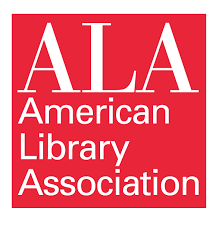 Two UNC media law students are graduating this spring and summer and moving on to great jobs in their fields. Both of them defended important research projects to earn their degrees.
Two UNC media law students are graduating this spring and summer and moving on to great jobs in their fields. Both of them defended important research projects to earn their degrees.
Brooks Fuller earned a Ph.D. from the UNC School of Media and Journalism in May and will begin work as an assistant professor in the Manship School of Mass Communication at Louisiana State University this fall.
Chanda Marlowe, a student in the dual-degree program administered by the UNC Center for Media Law and Policy, earned both a master’s degree from the School of Media and Journalism and a J.D. from the UNC School of Law. In August, Chanda will head to Washington, D.C., to begin work at the Future of Privacy Forum (FPF) as the Christopher Wolf Fellow. Her work at FPF will focus on consumer and commercial privacy issues, including projects involving privacy and non-discrimination.
Brooks’s dissertation used legal analysis and ethnographic field methods to better understand the role context plays in both courts’ and protest participants’ determinations of when speech causes harms during high-conflict political protests. The dissertation is titled “Words, Wounds, and Relationships: A Mixed-Method Study of Free Speech and Harm in High-Conflict Environments.”
According to Brooks, abortion clinic protests are quintessential high-conflict speech environments where the limits of free expression are continuously tested by protestors, making such protests ideal places to study free expression and to test long-held assumptions about how speech causes harm. Over an 18-month period, Brooks spent more than 500 hours observing protests at a North Carolina abortion clinic. Brooks also conducted dozens of in-depth interviews with pro-choice and anti-abortion advocates, police, and abortion clinic volunteers, and analyzed the social media and YouTube posts of various individual advocates and organizations.
Brooks’s key finding was that the harms that stem from speech have little to do with protest language. Instead, harms depend largely on the social relationships between the speaker and the listener and whether the speakers adhere to social norms that have developed in their particular protest environment. Brooks found that the world of abortion clinic protesting is carefully choreographed and routine. Through day-to-day routines, protestors develop social bonds with their adversaries that lessen the sting of the harsh rhetoric that characterizes abortion clinic protests. Brooks suggested that these findings reinforce the importance of understanding social relationships in order to better understand speech-related harms.
Brooks’s dissertation also points toward opportunities to advance the understanding of the First Amendment in American society through interdisciplinary scholarship. It is perhaps the first project of its kind to address traditional doctrinal First Amendment questions through a blend of legal and sociological research methods.
Chanda successfully defended a thesis that provides a full landscape of the legal issues surrounding the video surveillance of students in public schools and on public school buses. Her thesis explicated legislation and court decisions regarding the rights of students to challenge school video surveillance and the rights of others to access school surveillance videos once they have been recorded. It concluded with a set of best practices to help schools strike the proper balance between protecting students’ privacy and keeping schools safe.
Congratulations, Tar Heel graduates!

 I’m excited to announce that the Center will be hiring a
I’m excited to announce that the Center will be hiring a 
